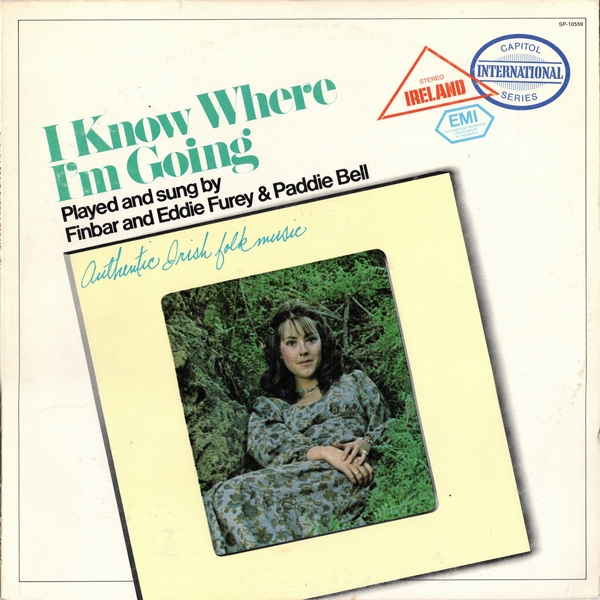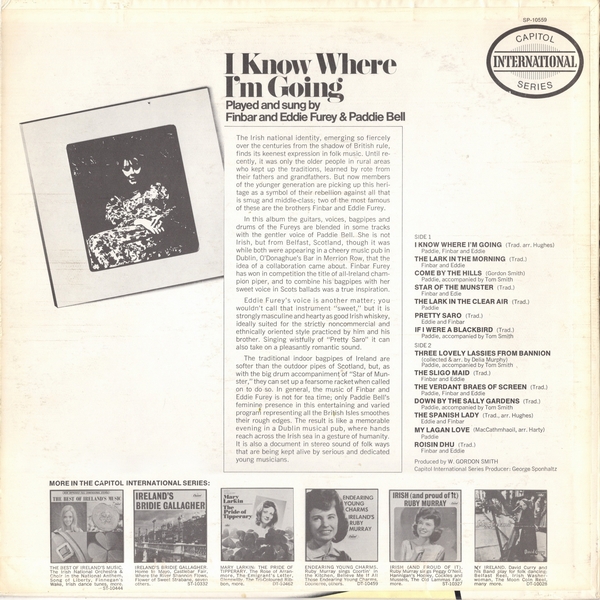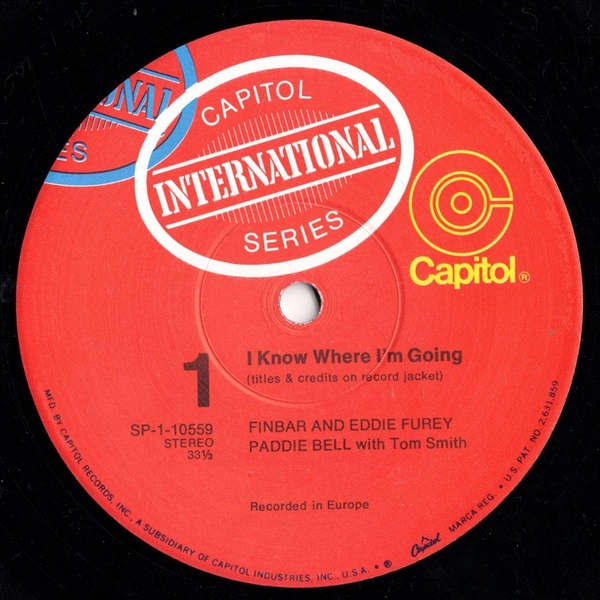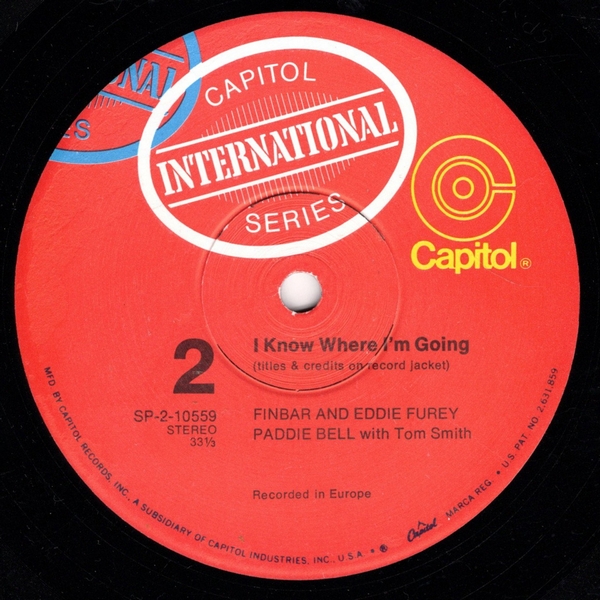

 |



|
Sleeve Notes
The Irish national identity, emerging so fiercely over the centuries from the shadow of British rule, finds its keenest expression in folk music. Until recently, it was only the older people in rural areas who kept up the traditions, learned by rote from their fathers and grandfathers. But now members of the younger generation are picking up this heritage as a symbol of their rebellion against all that is smug and middle-class; two of the most famous of these are the brothers Finbar and Eddie Furey.
In this album the guitars, voices, bagpipes and drums of the Fureys are blended in some tracks with the gentler voice of Paddie Bell. She is not Irish, but from Belfast, Scotland, though it was while both were appearing in a cheery music pub in Dublin, O'Donaghue's Bar in Merrion Row, that the idea of a collaboration came about. Finbar Furey has won in competition the title of all-Ireland champion piper, and to combine his bagpipes with her sweet voice in Scots ballads was a true inspiration.
Eddie Furey's voice is another matter; you wouldn't call that instrument "sweet," but it is strongly masculine and hearty as good Irish whiskey, ideally suited for the strictly noncommercial and ethnically oriented style practiced by him and his brother. Singing wistfully of "Pretty Saro" it can also take on a pleasantly romantic sound.
The traditional indoor bagpipes of Ireland are softer than the outdoor pipes of Scotland, but, as with the big drum accompaniment of "Star of Munster," they can set up a fearsome racket when called on to do so. In general, the music of Finbar and Eddie Furey is not for tea time; only Paddie Bell's feminine presence in this entertaining and varied program representing all the British Isles smoothes their rough edges. The result is like a memorable evening in a Dublin musical pub, where hands reach across the Irish sea in a gesture of humanity. It is also a document in stereo sound of folk ways that are being kept alive by serious and dedicated young musicians.